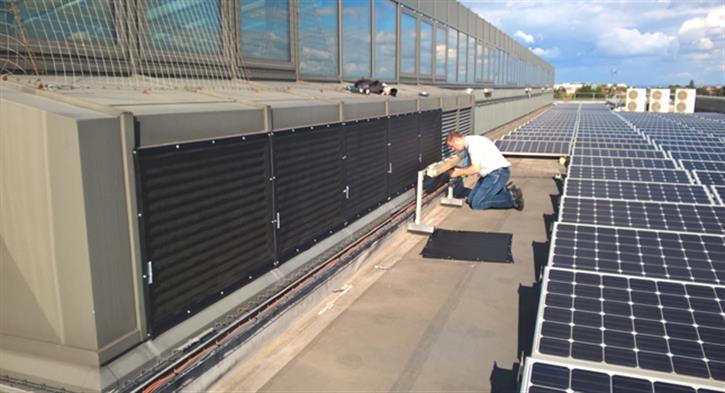

Richard Betts discusses why airflow is the single most critical element in the correct operation of all air heating and cooling systems.
Most air heating and cooling systems do not have the correct airflow. As a result, compressors overheat, fans blow hot air and the heat exchangers cannot provide the capacity and comfort that their manufacturers intended.
Accurate cooling or heating analysis cannot be performed, system performance cannot be measured, and the servicing or commissioning process will be compromised if airflow is anything but correct.
We heat and cool air, humidify it, dehumidify it, clean it, move it, supply it, return it and try to monitor it. All of these processes are jeopardised if the designed airflow to the system is restricted.
The recent economic climate has caused nationwide cutbacks on staffing and budgets. Fewer staff on site means a reduced capacity for maintenance and servicing. However, the key objectives of any maintenance team have not changed. These are:
Highly qualified engineers are wasting hours on the environmentally unfriendly, chemical cleaning of coil fins instead of fine tuning and balancing the sensitive air handling systems they are trained to maintain.
Measuring, monitoring and maintaining correct airflow should be the first step when servicing equipment. It is the key component for proper equipment operation. Energy consumption is dramatically increased when compressors and fans have to work harder to maintain design output and this means large amount of money are needlessly vanishing into thin air.
Also, if an expensive compressor needs to be changed and the technician has not fully determined why it failed, the new compressor is sure eventually to fail for the same reasons. Indeed compressors installed by service technicians fail at six to seven times the rate of original equipment.
In most regions of the UK, pollen is a major contributor to the fouling of cooling equipment. This, combined with general debris caused by foliage, refuse and other airborne particulates, can have a significant impact upon the day-to-day running of the equipment.
It has always been very difficult to add filtration to cooling equipment (water and dry air cooled), small condensers and cooling towers. Yet products such as the RABScreen external filtration now offer a solution to air intake debris, contaminated coils and clogged cooling tower sumps. These screens are easily fitted externally and prevent contaminates in the air entering the system, saving money by extending the life of disposable filters. It can also save up to 30% of input energy on chiller coils and saves labour by reducing cleaning and chemical use.
During the summer months coil cleaning, changing of internal air filters and general HVAC maintenance must be carried out more frequently, consuming much of the engineering team’s routine programmed maintenance schedule.
Similarly, the correct monitoring of airflow through cooling towers will help to minimise the risk of decaying debris such as insects, seeds and pollen forming a nutrient source for the legionella bacteria.
It pays dividends to keep HVAC airways clean as by doing so it reduces energy consumption considerably; it reduces the regular maintenance needed on cooling systems; and increases the efficiency of the equipment ensuring its long life well into the future.
More information on averting HVAC contamination can be found online at www.rabscreen.com.
Richard Betts is managing director of RAB Specialist Engineers.
If you'd like to keep up-to-date with the latest developments in the heating and plumbing industry, why not subscribe to our weekly newsletters? Just click the button below and you can ensure all the latest industry news and new product information lands in your inbox every week.